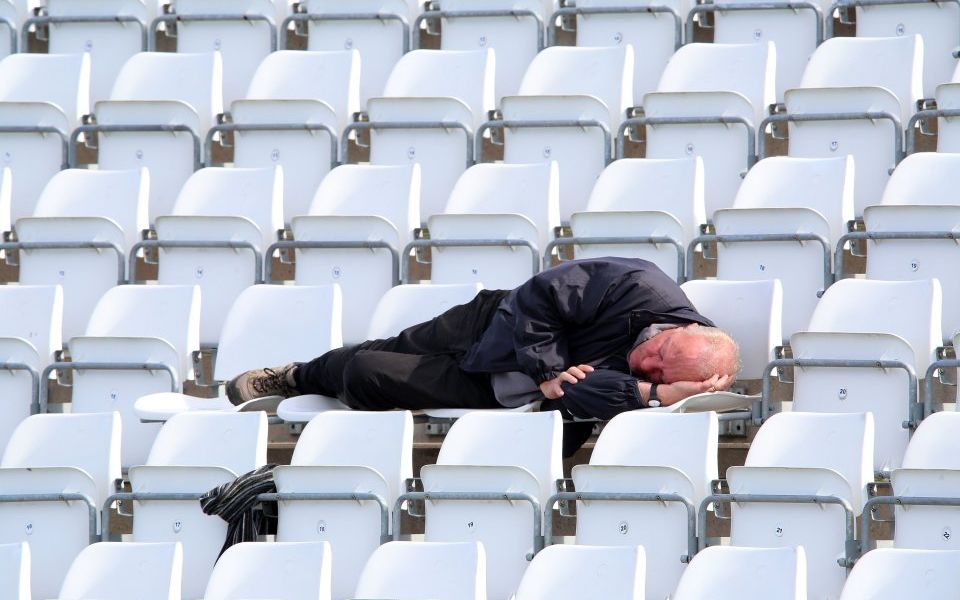How to get the ideal horizontal workout: Sleep is as important as nutrition and exercise, so why do we so often sacrifice it?

As a personal trainer, most people I meet want to lose weight, build muscle or recover from an injury. But I never meet anyone who says they want to sleep better.
Despite this, its something we look at closely at my gym, No1 Fitness, because it’s such an important factor in improving health.
I’d go as far as to say that sleep is as important as nutrition and exercise when it comes to achieving fitness results. It has an effect on almost everything: the more you sleep, the more your body regenerates, so the more energy you have throughout the day, making you more productive, which in turn gives you more motivation to train. Sleep also helps with recovery, which ultimately improves performance throughout the week. It’s a big circle, and one you need to break into.
The lives we live in the City can be demanding, even a bit overwhelming. We put so much pressure on ourselves, with deadlines to be met and targets to be smashed, that we often end up with a big build up of stress, which inevitably affects our sleep.
On every client consultation I ask two questions: how many hours a night do they sleep, and what’s the quality of that sleep? It’s amazing how many people never stopped to think about it. Let me put it like this: most people don’t get enough sleep, and adding exercise to your daily schedule will help improve that.
Almost all clients report that their sleep (both quality and quantity) improves when they start exercising with us, something that’s super-easy to measure these days, with dozens of sleep apps (many of them free) available on our mobile phones. Physical activity promotes night-time sleepiness and deeper sleep. After exercising for just over a week, you’ll notice, you will be sleeping better, longer and waking up feeling fresher in the morning.
If you’ve never monitored your sleep, try it out tonight, it can give you some really useful information, letting you know about any interruptions throughout the night, which could be a reason for daytime sleepiness.
And although exercise is a great way to improve sleep, there are a number of other strategies you can try throughout the day and into the evening. If you start introducing some these into your life, you’ll soon notice the benefits.
• Cutting out morning “snooze time” is the best thing you can do. We all savour an few extra minutes in bed, especially on these horrible dark winter mornings, but falling back to sleep and being woken again – sometimes half a dozen times – makes you feel tired and sluggish. As hard as it is to break this habit, I challenge you to give up the snoozes for the next week. Once you feel the energy boost, you’ll be less inclined to do it the week after.
• All humans have an internal 24 hour clock that ticks away the background of the brain, cycling between sleepiness and alertness. Exposure to daylight upon waking will help your sleep/wake cycle. This obviously becomes almost impossible at this time of year as its so dark, but several of our clients have purchased a lunar light, which acts as an alarm clock and slowly replicates a sun-rise, so that you will wake up in the light. It really works and is a big recommendation of mine.
• Meditation is something I’ve really got into this year, and it is amazing. It really helps you to stay positive. I prefer to do it as I wake up, because it makes me feel super alert and focused for the day ahead. It also helps me to sleep in the evenings; I can’t actually get through a full meditation after 8pm without falling asleep, so this would be a great thing to try if you do struggle.
• It may sound obvious, but cutting out caffeine after 2pm and cutting back on alcohol will help you sleep. Lecture over.
• Getting your big daily tasks done early will help with your stress levels, but many of us have a tendency to leave the hardest tasks until the end of the day. The less stress you can take home with you, the better.
• Warming up has been shown to make us sleepier. There are obviously loads of ways to do this, but I find having a hot shower and a cup of herbal tea works wonders.
• One piece of advice that’s always stuck with me is to never look at your phone once you get into bed, because the blue light can work like a shot of caffeine. So make sure everything is done before you get under the sheets. I used to have a terrible habit of checking my phone in the night, and the next morning I’d have completely forgotten I was texting or emailing people. I think my mind was in overdrive, automatically going through the motions. Since I started leaving my phone in another room before bed, I’ve completely stopped waking up in the night. Give it a go.
• Finally try to get into a regular sleeping pattern: aim to get to bed around the same time each evening and wake up at the same time. Eventually your body will get used to it.